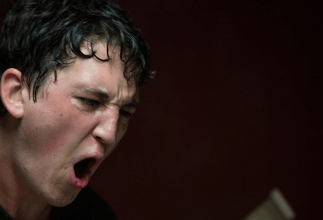We had a discussion on “Perfectionism” in class. The teacher believed it was bad, but I thought that without perfectionism, none of humanity’s groundbreaking innovations would have happened. I will try to explain what I have found as a result of my research in these three parts:
1: Can perfectionism be healthy?
Perfectionism is a personality trait characterized by setting extremely high standards for oneself, striving for flawlessness, and being overly self-critical when those standards are not met. From a psychological perspective, perfectionism can be adaptive (healthy) or maladaptive (unhealthy).
Adaptive Perfectionism: Involves high personal standards while maintaining a balance between striving for excellence and accepting mistakes as part of growth.
Maladaptive Perfectionism: Involves excessively high, often unrealistic standards, leading to anxiety, fear of failure, procrastination, and self-criticism.
2: Personality Traits of a Perfectionist
1- High Standards: They set extremely ambitious goals for themselves.
2- Self-Criticism: They are overly harsh on themselves for any perceived shortcomings.
3- Fear of Failure: They may avoid tasks or procrastinate due to fear of not meeting their high expectations.
4- All-or-Nothing Thinking: They see outcomes as either complete success or total failure, with no in-between.
5- Excessive Attention to Detail: They may focus on minor imperfections rather than the bigger picture.
6- Difficulty Delegating Tasks: They often struggle to trust others to do things “correctly.”
7- Strong Need for Control: They want things done in a specific way and can become frustrated when things don’t go as planned.
8- Low Self-Compassion: They find it hard to be kind to themselves when they make mistakes.
3: Is Elon Musk a Perfectionist?
Elon Musk exhibits many traits associated with perfectionism, particularly in his relentless pursuit of innovation and high standards in companies like Tesla and SpaceX. His work ethic, attention to detail, and unwillingness to accept mediocrity suggest strong perfectionist tendencies. However, his perfectionism seems to be more on the adaptive side—pushing for breakthroughs while still managing to execute ideas at a massive scale.
Some evidence of his perfectionism includes:
- His demand for excellence from employees and an expectation to work at an intense pace.
- His obsession with details, seen in design decisions for Tesla cars and SpaceX rockets.
- His intolerance for subpar performance, often leading to rapid decision-making and firings.
- His workaholic tendencies, sometimes at the cost of his personal well-being.
However, his risk-taking and ability to move forward despite failures suggest that he is not entirely a maladaptive perfectionist. Instead, he uses his high standards as a driving force for innovation.




